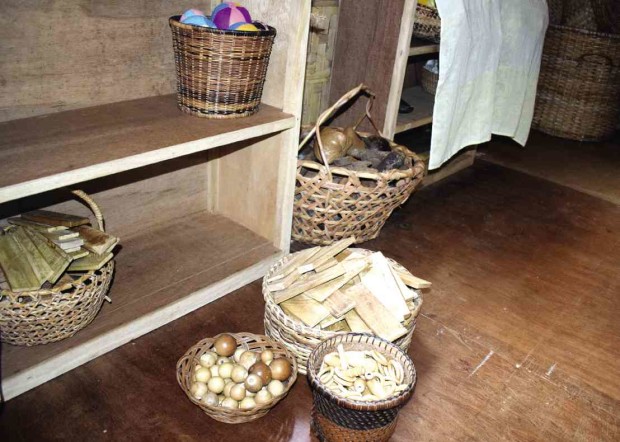It’s not a school; it’s a community

SHUNNING plastic toys, the school offers pieces of wooden slabs, rattan-made coils, wooden balls and handmade cloth balls to develop the children’s imagination. Ma. Cecilia Rodriguez
A COMMON sight on the modest, yet remarkable school campus of Tuburan Institute in Sitio Loon, at the foot of Mt. Talomo here, are children as young as five climbing trees, running, jumping, singing, playing freely, bare earth under their feet.
In this school, there are no ringing bells, no warning signboards and no loudspeakers to prompt students. There is only laughter above the silence of the semi-forested campus. The children laugh like they’re the luckiest creatures in the world.
“We base our curriculum on the concept of human being,” said Kate Estember, cofounder and one of the school administrators.
“This is culturally appropriate education in which children are developed holistically,” said Estember.
With only a vision, guts and few thousand pesos, Estember, 34 and Maya Flaminda Vandenbroeck, 35, built Tuburan Institute as the first Steiner/Waldorf-inspired school in Davao City.
Article continues after this advertisementAccording to the website steinerwaldorf.org, Steiner/Waldorf education takes into account all the needs of the child—academic, physical, emotional and spiritual.
Article continues after this advertisementIt develops a love for learning and an enthusiasm for school. For over 80 years since its formation in Europe, over 1,200 Steiner schools have been established across the world, with only 12, including Tuburan Institute, located in the Philippines.
Societal change
Kate and Maya started off in 2012 with a passion to drive change in society mainly through education.
Their group, called MISSION, or Movement of Imaginals for Sustainable Societies through Initiatives, Organizing and Networking pressed them on to build a non-conventional learning center that will nurture change makers.
They called the school Tuburan, from the Cebuano word “tubod” or spring, and featured a logo showing a caterpillar transforming into a butterfly. It seeks to distinguish the school’s “Mindanao flavor”.
From being just a fledgling learning center in Indangan, Buhangin District with only 12 kindergarten students, the school grew into a full-fledged, Securities and Exchange Commission-registered and Department of Education-accredited primary school.
Three years ago, they transferred to a one-hectare clearing, 400 meters from the paved road in Sitio Loon, Tugbok District, with four eco-inspired classroom buildings, an administration office and a vegetarian outdoor kitchen.
“We slowly developed the school through outside funding. We sought out donors who believed in our ideals,” says Maya, Tuburan’s resource mobilization officer.
“The school was built not for profit, but for a higher cause. So we offer a socialized tuition scheme to allow children from even poor families to enroll. Our students come from a variety of social strata—from the relatively wealthy, middle class to poor families,” Maya said.
Seeking to subsidize more students from low-income families, Maya has been trying to raise funds.
“The school has become a community of parents, learners, teachers and supporters who are committed to Tuburan’s mission,” Maya adds.
Through promotional ads and the more reliable word-of-mouth, parents in Davao City and across the region are slowly catching up on what Tuburan Institute is advocating. While more parents want their children in, Kate explains that the entry process for a student is long and meticulous.
“We don’t accept just anyone. A complete lifestyle change is imperative not just for the learner but for the whole family. We make sure they commit to that before they can get in,” Kate, who also currently handles the grade three class, adds.
Enrolling the whole family
Emilou Tinio enrolled her eldest child in Tuburan last year and has since been a passionate champion of the school’s mission.
Unlike traditional primary schools where pupils stowing big trolley bags sit in the class room and listen to teachers all day, Emilou saw how Tuburan engages children in practical, hands-on activities, creative play, story-telling, art, music and dance to teach arithmetic, science and language.
“As parents, we’ve been asking ‘what would make our children distinctive?’ So we scouted for schools and we found the answer in Tuburan,” says Emilou.
She narrates how they were finally able to pass the school’s strict enrollment process. Under Steiner education, what the school requires from the child at school must also be done at home. This means no TV, no computer and no junk food in the house.
“That is why when you enroll a child in Tuburan, you enroll the whole family. Everyone in the family has to change lifestyle,” she added.
“Surprisingly, this change actually drove us closer. It enriched the family and encouraged us to strive to become better parents,” says Emilou.